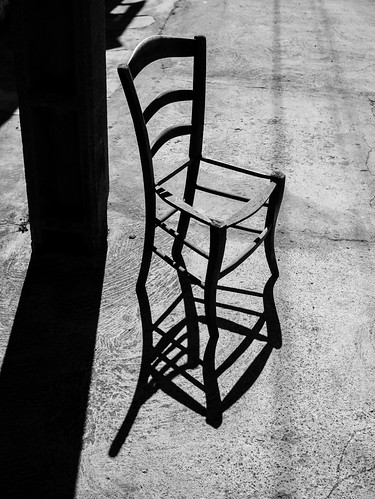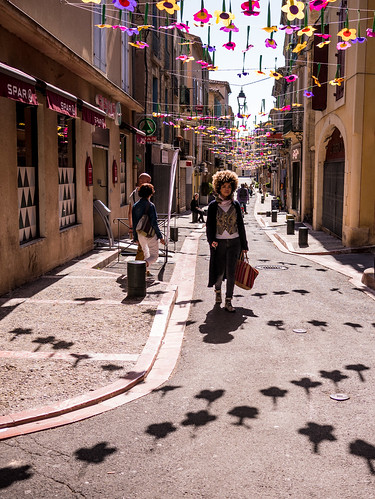From the category archives:
Academia
Two nights ago, I got back from a work-dinner, kicked off my heels in the hall and hung up the smart jacket that went with them, pulled on docs and a coat to walk the dog. Which is worse; a half-mile walk in a too-tight dress now, or a long-cold shit on the kitchen floor in the morning? Walk it was.
Half way round the walk – which has gradually lengthened from ‘don’t stop walking right after the dog shits because he’ll learn to hold it in to maximise the walk’ to ‘sod it, may as well do the mile’ – the lolloping pace of the docs, the cool and the dark, and a sudden realisation that with a medium to large sized dog I feel somewhat impervious – it came to me. I felt free. Free in a way I haven’t felt since Jerusalem in 1996, I think it was.
Rolling back a little. My first ever holiday alone. The Greek Islands. Black sands of Santorini, a night spent sleeping on the deck of a ferry and waking up with the sun. Actually, that’s all I can remember. After Santorini I couldn’t take any more of all the same and got a flight to Israel to do some real traveling. I got there a day or two after Benjamin Netanyahu had won his first election. I saw him on the street, actually, in the middle of a dozen or two people bowling along the pavement, then careening from the footpath to cross the street and spin back again, like primary school boys in a moving melee around the ball.
I stayed in a youth hostel somewhere central-ish in Jerusalem.
“Hi Mum,” I couldn’t resist calling home. No point being a rebel unless you let the establishment know. “Guess where I am.”
She couldn’t, so I told her. There may have been a sharp intake of breath on the other end, but history doesn’t relate. History does relate that on the out-breath she said; “Oh you must look up Declan Meagher. He delivered you all and he runs the maternity hospital in Bethlehem, now.”
[click to continue…]
In my properly aspiringly middle class household we were allowed to watch ITV, but we were mocked for it. So when Catweazle was first shown, I never saw it. I knew about it, though, and for a while I bought Look In, solely for the Catweazle and Timelsip strips. I did watch it in repeats when I was a bit older, and more willing to endure the mockery. But when Network put out the DVDs I got them immediately, and have now watched every episode several times, with each of the kids and lots of the their friends. The second series is great, but the first series is sublime. Packed with character actors, many yet to become famous; stupid — and brilliant — sight gags and puns; short, and sweet, episodes. But, at the core, is Bayldon; dirty, ragged, mischievous, bewildered. Its hard to imagine anyone else — maybe not even Jon Pertwee — succeeding in the role. And, for me, seeing him in anything else is bizarre (his presence makes it as hard for me to take To Sir With Love seriously as Leonard Rossiter’s makes 2001 A Space Odyssey). You don’t have to get the DVDs, by the way. Every episode seems to be on youtube.
Here’s the evening standard, because I can’t find a BBC or grauniad obit. Nothing works.
This new Chronicle article by Michael Vasquez on a surreptitious effort by a non-profit organization to get conservatives elected to student government positions is worth reading throughout. There’s absolutely nothing wrong with conservatives organizing to get elected – what’s fishy is the stark contradiction between the organization’s private self-understanding (a “rather undercover, underground operation” to change politics on campus) and its public self description. See further this Amy Binder piece for a description of the background politics – what is happening, more or less, is that bomb-throwing conservative campus organizations are sparring with the more sedate and traditional ones for the money and attention of donors, and winning.
But what I wanted to single out was this bit, which very much reads to me as one of those ‘the journalist strongly believes that there is something interesting going on, but hasn’t nailed down interview or documentary evidence’ hanging observations that you sometimes see in news articles (I understand from talking to journalists that such paragraphs are often a way of shaking the tree – if you put something out there, it may encourage others to come forward with more evidence).
Yet there is one policy proposal that almost always shows up with Turning Point’s candidates: promoting Uber.
The ride-sharing service has long been touted by conservative politicians as an example of free-market innovation. Student government can push for Uber in two important ways: lobbying local municipalities to allow Uber service on campus, and setting aside student-government funds for late-night “safe ride” programs that provide free or discounted Uber service to students.
In Mr. Kirk’s book, a group of “Turning Point USA activists” are credited with helping the University of Southern California’s student government reach its free-ride arrangement with Uber. Mr. Kirk’s book mentions Uber 42 times.
… At the University of Alabama at Tuscaloosa last year, the student-government president at the time, Lillian Roth, was an outspoken supporter of bringing Uber back to campus. She even met with Tuscaloosa city officials on the issue, and the city allowed Uber to resume service last summer.
Ms. Roth was endorsed by Turning Point’s student chapter at Alabama. Her father, Toby Roth, has long been active in Alabama politics and is a registered lobbyist for Uber. Mr. Roth said his daughter didn’t have a conflict of interest in advocating for Uber.
“She was not a decision maker in the process,” he said. “Whether or not Uber came to campus was not in her discretion. If she was on the City Council in Tuscaloosa, if she was the mayor of Tuscaloosa, then yes, I think recusal would be in order.”
Notably, Vasquez shows that it isn’t just activists at the University of Alabama at Tuscaloosa that have been pushing the pro-Uber perspective. Perhaps the elective affinity between conservative campus activism and promoting Uber is just so compelling that pretty well everyone whom Turning Support has helped fund independently sees this as a core issue. Perhaps not.
I decided it was about time to reread the classics. Fantastic Four #11, to be exact.
In this scene the FF are reading from the mailbag. (Ben has, once again, been temporarily turned human by one of Reed’s serums. It won’t last.)
What is Reed going to say, you wonder? Well, wait no longer, loyal Marvelite! Just click and read under the fold! ‘Nuff said! [click to continue…]
[Note by CB: This is a guest post by Holly Lawford-Smith, a political philosopher at the University of Melbourne. Internet discussion on this topic has been very heated so we intend to enforce quite a restrictive comments policy. All comments that are not written in a minimally respectful tone, vis a vis all parties, will not be approved. No raising of voices. No insults.]
Something bad happened recently. Here’s what I thought it was: a member of a marginalized group within our profession (a pre-tenure woman) published a paper; a group of philosophers were angry about the paper; those same philosophers signed an open letter to Hypatia calling for retraction of the paper; Hypatia issued an apology for publishing the paper; another group of philosophers rallied in defence of paper’s author, against both the journal and the group of philosophers who were angry about the paper in the first place. This would be bad, because the way we deal with disagreement in our profession – both about form and about substance – is not to demand retractions but to write replies. Also, we generally try to encourage and support junior and marginalized scholars, not pile on in attacking them when they make mistakes.
From a Laurie Penny piece last month for The Baffler, “The Slow Confiscation of Everything: How To Think About Climate Apocalypse”: “As David Graeber notes in Debt: The First 5,000 Years, the ideal psychological culture for the current form of calamity capitalism is an apprehension of coming collapse mated bluntly with the possibility of individual escape.”
That’s a Cory Doctorow thought. More specifically, how can humanity defeat the distinctive sorts of bullshit moral self-delusion that are the bastard progeny of that blunt mating? Evil snowcrash of snowflakes, melting, each trying to be The One. Cory credits Graeber (among others) right there on his acknowledgement page. And I might add: Penny immediately mentions Annalee Newitz’ new book, Scatter, Adapt, And Remember: How Humans Will Survive A Mass Extinction – which bears an effusive Doctorow blurb: “… balanced on the knife-edge of disaster and delirious hope.”
Call it the one-body problem. I’ve only got the one, you see …
Meanwhile, what matters is: you know, humanity. [click to continue…]
When I was in college and in graduate school (so the 1980s and 1990s), the dividing line on free speech debates was, for the most part, a pretty conventional liberal/left divide. (I’m excluding the right.) That is, self-defined liberals tended to be absolutists on free speech. Self-defined leftists—from radical feminists to radical democrats to critical race theorists to Marxists—tended to be more critical of the idea of free speech.
What’s interesting about the contemporary moment, which I don’t think anyone’s really remarked upon, is that that clean divide has gotten blurry. There were always exceptions to that divide, I know: back in the 1980s and 1990s, some radical feminists were critical of the anti-free speech position within feminism; some liberals, like Cass Sunstein and Owen Fiss, were more sensitive to how power differentials in society constrained speech, and thus were more open to more regulatory approaches to speech; some Marxists were always leery of the critiques of free speech. Even so, there was a divide. That divide hasn’t now reversed, but it’s no longer the case that it maps so easily onto a simple and clear divide between liberalism and the left.
From what I see online, a lot of mainstream liberals today are far less absolutist in their defense of free speech, particularly on campuses; indeed, that absolutist position increasingly seems like the outlier among liberals. And parts of the left are now taking the more absolutist position. Once upon a time, a Jonathan Chait would denounce leftist campus critics of free speech, and it all made sense. Today, when he does that, he seems completely out to lunch: a lot of the people he’s talking about are conventional liberals just like him.
(On a related note, there was a funny moment on Twitter yesterday, when the ACLU defended Ann Coulter’s right to speak at Berkeley. Twitter liberals freaked out in surprise: the ACLU, defending Ann Coulter’s right to speak! How could that be? None of them seemed to remember or realize that once upon a time, back in the late 1970s, the ACLU defended real Nazis—as in members of the American Nazi Party—marching in Skokie, a Chicago suburb whose residents included many Holocaust survivors.)
Just so we’re clear. Nothing in this post is meant to be normative or prescriptive; I’ve tended to stay out of these debates of late, in part because they mostly don’t speak to my experience of campus free speech. Our challenge at Brooklyn College has never really been how to keep speakers off campus; it has almost always been how to get them on campus.
All I’m doing here is making a simple, and I believe non-normative empirical observation: that something new is happening on the divide between liberalism and the left over the question of free speech. Unlike the recent past, the free speech argument now cuts right across that divide. And to that extent, it takes us back to an earlier moment, in the 1930s and 1940s, when American liberals and the left were also in dialogue, and taking a mixture of cross-cutting positions, on the question of free speech.
Well in fairness, it hardly feels like summer is coming unless there is a massive, polarising electoral campaign in the UK.
On watching the PM call the election, issuing the death knell for Labour – a sentence the party is only to happy to carry out on itself – I had the same grim satisfaction I remember from boarding school, when the head-nun blasted apart a girl we all knew was innocent. We all stood in a semi-circle around the weeping victim of the precision tongue-lashing and watched as we’d been instructed to, sympathetic, appalled but also weirdly thrilled. Not by the spectacle itself, but by a grim gladness that even the pretence of even-handedness had finally been dropped. The bully in a habit was no longer acting otherwise. There’s always a next victim, and a next one, and in that place, the subsequent victim was me (public verbal demolition AND a face-slapping – from a great height, you fall a long way), but I can’t deny there was satisfaction, then, too.
Let’s watch this nasty show play out as what it really is.
Yesterday Dan Drezner said it was embarrassing that US Attorney General Jeff Sessions called illegal aliens “filth.” Today Drezner apologized, because while the word “filth” was in prepared remarks, Sessions didn’t say it, and because even in the prepared remarks, “The context is clear: Sessions was going to use ‘filth’ to describe MS-13 and drug cartels, not all illegal immigrants crossing the border.”
While I admire Drezner’s forthrightness in admitting a mistake I think he has made another one. He should make only the first half of this apology, because, in fact, the context is not clear—as, I can only suspect, is indicated by Sessions’s decision not to say the word aloud.
The other day my incoming email included an invitation from an Olla Galal, special issue developer at Hindawi publishers, to be the Lead Guest Editor for a Special Issue of Occupational Therapy International. Nothing too surprising in that, although my knowledge of occupational therapy would barely extend to a paraphrase of the name. I’m always getting invitations like this, and while I had the impression that Hindawi was a cut above the kind of predatory publishing house that does this kind of thing, I wasn’t too sure. (I have received previous invitations of this kind from them, but in fields where I could at least be a plausible candidate.
What made me pay attention was this
In June 2016, Wiley and Hindawi entered into a new publishing partnership that converted nine Wiley subscription journals into Open Access titles. The journals will be published under both the Wiley and Hindawi brands and distributed through Hindawi’s online platform
So, if this is accurate, I could become a guest editor for a Wiley journal in a field in which I am totally unqualified. More seriously, authors of papers in the old version of Occupational Therapy International “very well respected in its field with an impact factor of 0.683” according to Olla Galal, will now be associated with the new one.
Having got this far, I thought I should check Beall’s list of predatory journals, only to discover that it went dark on 17 January* for unexplained reasons. This is certainly depressing. It seems that even supposedly reputable academic publishers are now engaged, with only the fig leaf of a “partnership”, in seriously predatory behavior. How long before we see them pandering to the demand for “alternative fact” journals to give proper credibility to creationism, climate science denial, antivax and so on, if they are not already?
* Only a couple of days before Trump’s inauguration. Coincidence?
Political philosophers have been arguing about equality for a very long time. We’ve argued about whether equality is a fundamental value or whether what matters is better captured by a focus on priority or sufficiency. We’ve argued about whether egalitarians should focus on securing equal amounts of something or on assuring people that they stand in relationships of equality of status toward one another. We’ve argued about the currency of egalitarian justice, and whether we should assess equality in terms of welfare, resources, opportunity for welfare or “advantage”. Luck egalitarians have argued that people should be rendered equal with respect to their unchosen circumstances but that inequalities that result from choices people freely are ok. All of these are arguments within the egalitarian camp.
So it is frustrating [to read a paper](http://www.nature.com/articles/s41562-017-0082) in *Nature*, written by some psychologists from the Pinker/Haidt school of public pontificating that claims that people don’t care about equality but about “fairness”, where the inequalities that people tolerate turn out to be (a) inequalities in money and (b) inequalities that result from choices people make. Nobody working in poltical philosophy thinks that inequalities in money matter fundamentally, and lots of people think that the value of equality, properly understood, not only allows but *requires* differences in outcome that result from choice. There’s one reference to Rawls in the paper (simply to mention the veil of ignorance) and one of Frankfurt’s sufficiency view, but Dworkin, Cohen, Sen, Anderson, Arneson et al are entirely absent. Perhaps *Nature* needs to pick its peer reviewers from a wider pool.




